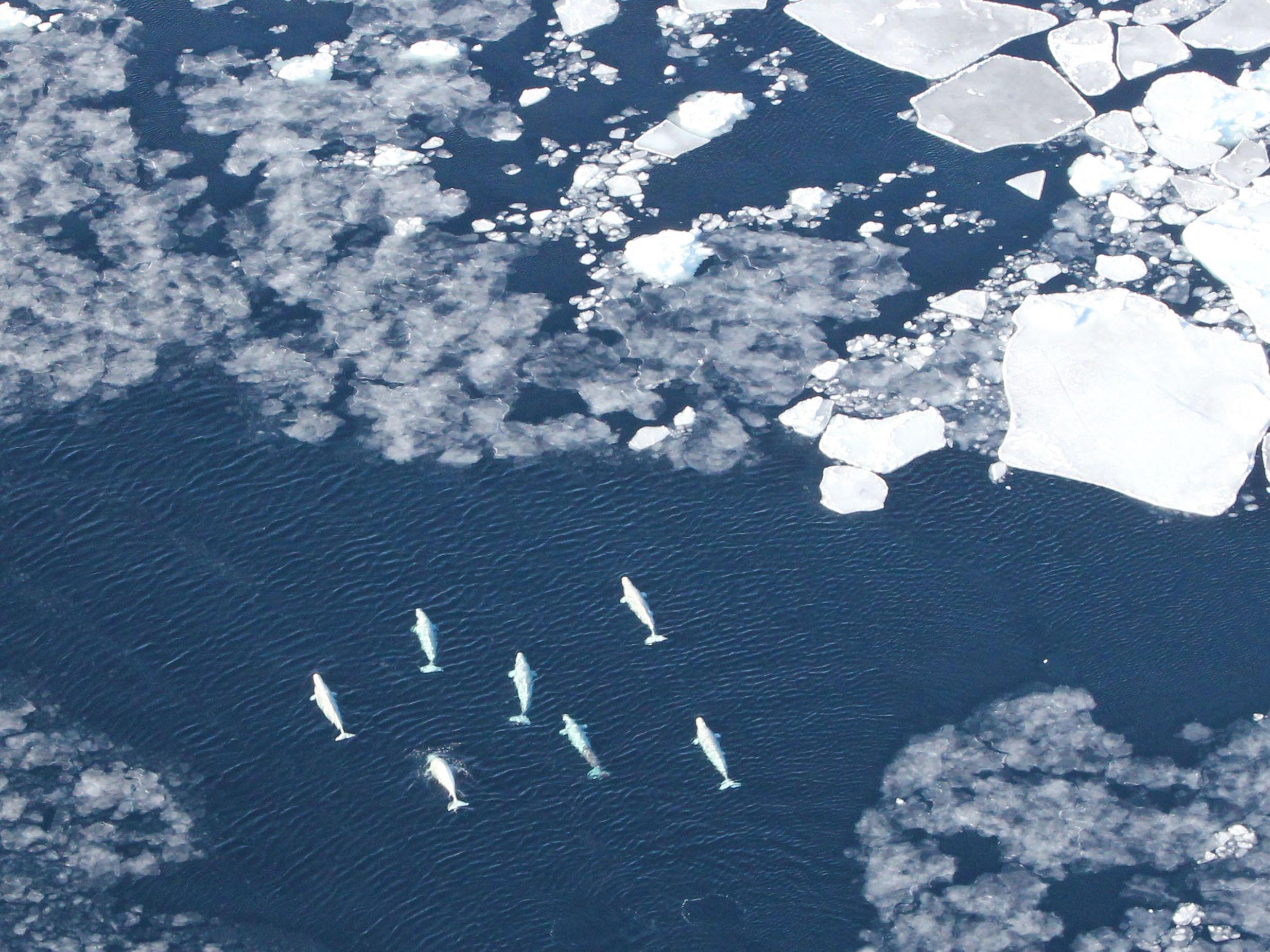Why is there an Arctic beluga whale swimming in the Thames?
Mammal spotted off Coalhouse Fort in Essex by surprised locals
The people of Tilbury in Essex received a shock this afternoon as a beluga whale was spotted making its way up the River Thames.
The mammal was seen off Coalhouse Fort near Gravesend and Kent's Shorne marshes, where ecologist Dave Andrews tweeted his sighting.
“For anyone twitching the beluga, it’s been feeding around the barges for the last hour and hasn’t moved more than 200 metres in either direction. Still present,” he wrote.
There have been between 20 and 30 beluga sightings in the UK over the past 30 years, the last recorded arrival in British waters occurring in Northumberland in 2015 when the whale was able to simply turn back and return to the sea. There has not been a beluga sighting in the Thames since 1913.
Precisely what attracted the latest beluga is unknown but there are a number of theories.
“It could have followed a food source, it could have become disorientated or it could have been motivated by a disturbance,” Lucy Babey, head of science and conservation at cetacean charity Orca, told The Independent.
The whale, “out of its normal habitat” away from the coasts of the Arctic and Greenland, ordinarily swims in groups but might have become separated from its pod as a result of illness or injury or been driven off course by a “disturbance” at sea, Ms Babey speculated.
This disturbance could be anything from a weather front to it being startled by a noise from a ship, she said.
On the question of whether Britain’s unseasonably warm summer might have played a part in leading it off course, Ms Babey suggested this could be the case if the whale’s food supply had cause to behave differently as a result of the balmier conditions. The beluga lives on crustaceans, molluscs and plankton.
“There have been sightings of Arctic species moving south this year,” she noted, pointing to the appearance of a walrus off the beaches of northern Scotland in March.
“Ultimately we won’t know for sure why [the whale] is here unless we examine its carcass, which obviously we don’t want to do,” she said.

This was the fate of the 6m long female northern bottlenose dolphin that swam up the Thames in January 2006, which was subsequently found to have died of dehydration, stranding-related injuries and organ failure after valiant attempts by divers to rescue it failed.
A media sensation at the time, with punters lining the banks of the river at Chelsea and Battersea to catch a glimpse, the dolphin’s skeleton is now housed in the Natural History Museum.
“One thing we’re trying to stress is that members of the public keen to catch a glimpse of the whale should do so in a respectful manner,” Ms Babey said.
“Keep away from the mammal and avoid causing any distress.
“British Divers Marine Life Rescue will be on the lookout and prepared to shepherd it back out to sea if need be.”
Her advice was echoed on social media by Sarah Dolman of Whale and Dolphin Conservation, who tweeted: “Probably not good that this beluga is in the Thames. Please give the whale space!”
Join our commenting forum
Join thought-provoking conversations, follow other Independent readers and see their replies
Comments
Bookmark popover
Removed from bookmarks